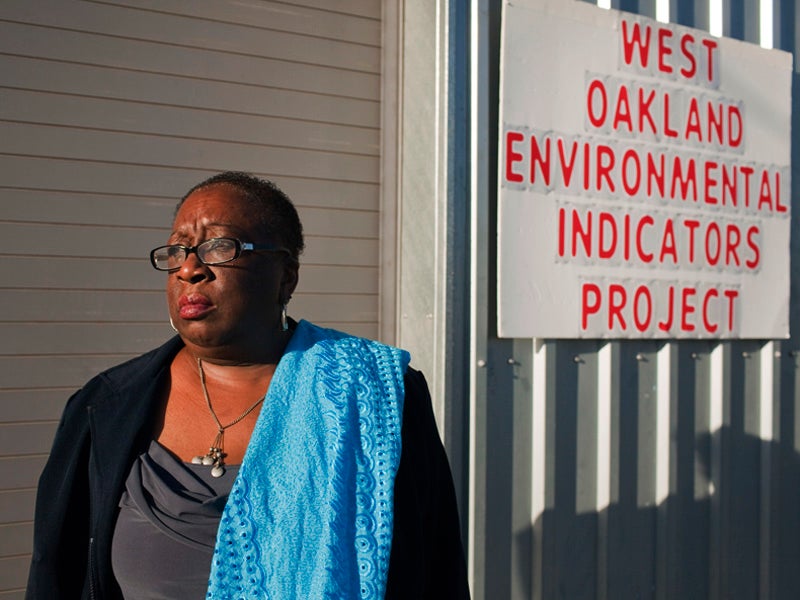Celebrating Women’s History Month, Community Advocate Margaret Gordon
During Women's History Month, we're spotlighting the work of environmental justice advocate Margaret Gordon.

This page was published 10 years ago. Find the latest on Earthjustice’s work.
Earlier this month, as part of Women’s History Month, we celebrated the life and legacy of environmental activist and pioneer Rachel Carson. It is equally important to celebrate the strong women making history today and breaking new ground in the environmental justice movement.
One such woman is Margaret Gordon, co-founder of the West Oakland Environmental Indicators Project (WOEIP). Ms. Gordon is a third-generation resident of West Oakland, Calif., whose family still lives in the neighborhood. In the spirit of Oakland’s long and proud history of citizen activism, she has worked to mobilize her community and protect its health from the effects of freight transportation.
West Oakland, a predominantly low-income and African-American neighborhood in the city of Oakland, sits across the Bay from San Francisco. The neighborhood houses one of the busiest ports in the United States, the Port of Oakland. Loading cranes cluster along its shores, and highways and rail lines cut through the neighborhood, shuttling cargo to and from the port.
Despite the economic benefits of this freight, this infrastructure has a dark side in its serious impacts on the health of the surrounding community. Along with the products shipped from Asia and other parts of the world, the diesel trucks, ships, trains and cranes spew a toxic brew of chemicals that seriously harms children’s lungs.
The long-term health outcomes for residents of neighborhoods next to the port are drastically different from the outcomes for residents of wealthier hillside neighborhood. According to a report prepared by Communities for a Better Environment, with the assistance of WOEIP, an African American born in West Oakland is likely to die fifteen years earlier than a person born in the Oakland Hills, and more likely to suffer from diabetes, heart disease and cancer. Gordon has been on the frontline advocating that this is an unacceptable statistic that must be changed.
Gordon did not always work as part of the environmental justice movement. For many years she worked as a housekeeper and held other jobs to help support her family. When her asthma began worsening, and many of her grandchildren became sick with asthma, Ms. Gordon decided that she needed to do something.
She formed WOEIP in 2002 and began educating herself and her neighbors about the health effects of freight transportation. She was able to get a handle on the language and science relating to freight transportation, and learned how to navigate the public hearings and meeting places where neighborhood development decisions are made.
Over the years, WOEIP has successfully pushed government officials to protect the health of portside communities and has worked to empower community residents to take charge of their own health. WOEIP has conducted traffic and air quality studies to measure the effects of freight movement, recruiting local residents to help track truck movements and monitor air quality. WOEIP pressured the city of Oakland to change truck routes so that traffic would not be concentrated in residential neighborhoods. In 2008, Ms. Gordon won a seat at the table when she was nominated and selected to sit for a four-year term as a port commissioner. She has also been a part of state and federal EPA efforts to study goods movement, improve air quality and promote environmental justice.
For all of these successes, the health of West Oakland residents remains at risk. Freight traffic through the port is increasing, and with it the corresponding hazards to human health. Gordon hopes that the city will continue to work with community residents to protect their health and that young people in the neighborhood will continue to be involved in carrying the work of WOEIP forward.